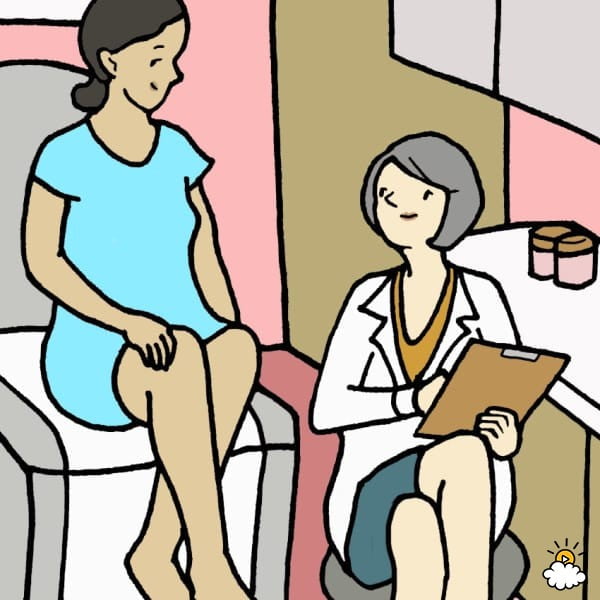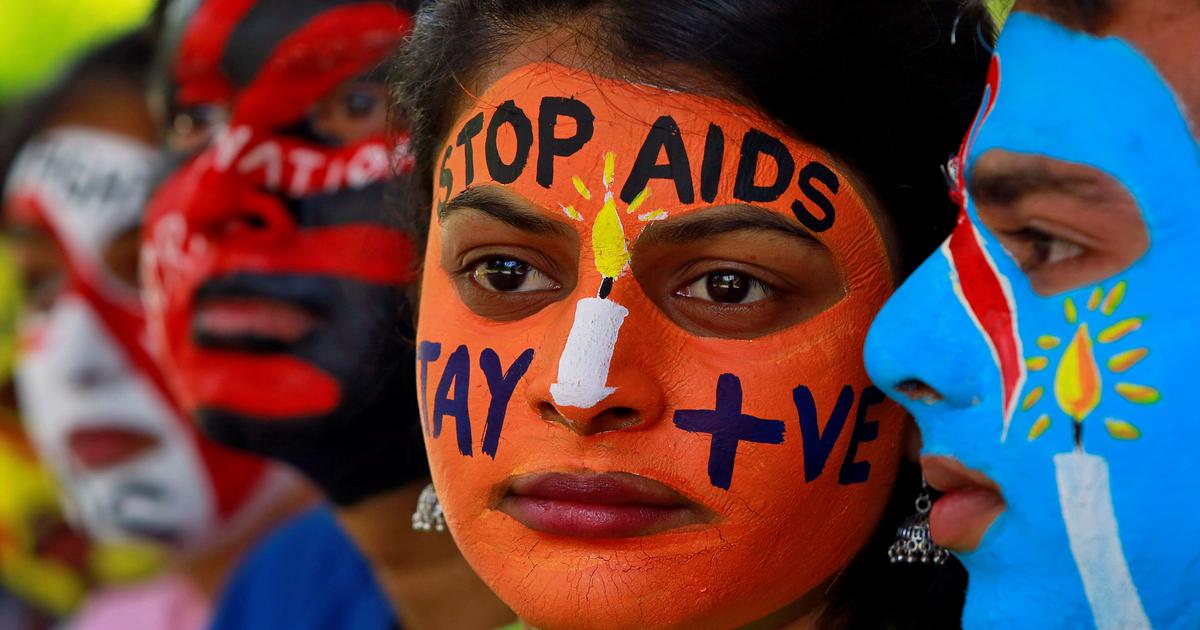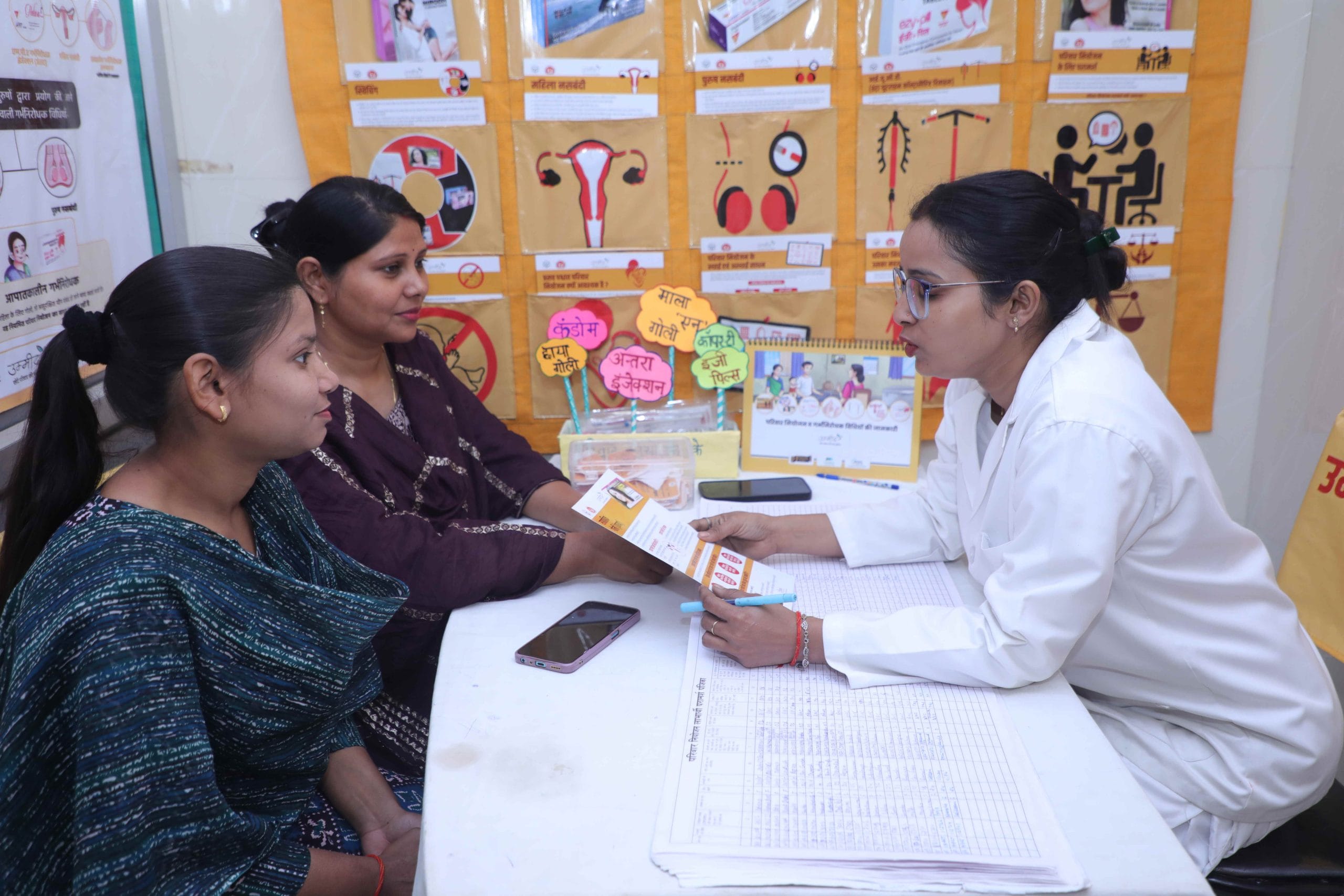Premarital sex is a taboo in our society. It is not surprising that unmarried women are rendered as desexualized beings who are devoid of any desire or sexual agency. So, there is very little information for women to even grasp knowledge about their sexual and reproductive health, apart from the internet. There is internalized shame, stigma and silence regarding women’s bodies and sexual experiences. Some women who decide to seek help from gynecologists are often judged for indulging in premarital sex, moral policed, shamed, denied services and not given accurate information for an informed decision-making in order to access sexual health services.
Haiyya, a Delhi-based campaigning and non-profit organization conducted a survey in 2018 to testify the stigma associated with sexual and reproductive health of women by reaching out to 750+ unmarried women in Delhi. The findings of the survey were published in the ‘Health Over Stigma’ campaign report by Haiyya which revealed that as low as 1% of women said they had received information pertaining to reproductive and sexual health services and rights from their mothers, doctors or government campaigns. 53% of these women felt unsure if the sexual health problems they were facing were severe enough to visit a gynaecologist.
In a campaign meet-up organized by Haiyya, women shared harrowing stories while accessing sexual health services. One of them recalled how, while trying to get an abortion, she was lectured by the gynaecologist about the importance of motherhood and the irresponsibility of “killing a child”.
The campaign achieved a huge victory when Delhi Medical Association and Delhi Medical Council agreed to the 10 guidelines that women from the community had come up with for safer and stigma-free access to sexual health services
Service providers are expected to provide safe spaces for unmarried women who already have to face the ire of society for transgressing the standards of an “ideal” women. However, another woman in the meet-up narrated her experience, “My friend was pregnant. I went along with her to the hospital to get an abortion. But she received a lot of moral judgment from the people in the clinic as well as the doctor. The experience scarred me for life.”
Prejudices among Gynaecologists

The campaign achieved a huge victory when Delhi Medical Association and Delhi Medical Council agreed to the 10 guidelines that women from the community had come up with for safer and stigma-free access to sexual health services (It is to be noted that after the meeting it was concluded that these 10 commandments would require some revisions). To commemorate this victory, a panel discussion inviting medical authorities, partners, funders, media and unmarried women was held at the India International Centre.
Dr. Girish Tyagi, President, Delhi Medical Association and Dr. Arun Gupta, President, Delhi Medical Council expressed solidarity with the campaign Health Over Stigma, to hold service providers accountable to stigma-free sexual and reproductive health services. “As the President of the Delhi Medical Council, I commit that we believe in ensuring safe and non-judgmental services to all unmarried women in the city and encourage them to avail sexual and reproductive health services as per their needs,” said Dr. Arun Gupta, President, Delhi Medical Council.
The medical fraternity present in the discussion acknowledged the prejudices that gynaecologists carry by virtue of being situated in a patriarchal society and also voiced their support to provide judgement-free sexual health services to unmarried women. Dr. Nimmi Rastogi, Health Advisor, Delhi Government, and a gynaecologist said in support of the campaign, “As health professionals and specialists it is not our place or job to judge women or pass unsolicited advice, or sermonize them about their sexual practices or choices. Our job is to make sure they’re healthy.”
Responding to the stigma attached to unmarried women’s access to sexual health services, gynaecologist Dr. Surbhi Singh, President, Sachhi Saheli, an organisation working on eradicating menstruation stigma and a partner in the campaign said, “I’ve been on the other side and been biased, and as a doctor never thought that being judged on a patient’s marital status was a real issue. But working on this campaign was like looking in the mirror. I understand exactly how judgement is a real issue, and can affect the lives of women. I’m happy that the campaign is gaining momentum and support.” She also admitted the bias towards unmarried women and the categorization of “good” women and “bad” women, while recalling her experiences in medical college.
Also read: At The Gynaecologist: What Makes My Body Mine? | #MyGynaecStory
Accounts of unmarried women reveal how they have been denied treatment because of being sexually active. A respondent recalled, “I went to a doctor to get an infection treated. But once she knew that I was not married and sexually active, she found it immoral to treat me. She asked me to find another doctor”. Such a discrimination stands in stark contrast with the Code of Medical Ethics Regulations, 2002 that states, “No physician shall arbitrarily refuse treatment to a patient. However for good reason, when a patient is suffering from an ailment which is not within the range of experience of the treating physician, the physician may refuse treatment and refer the patient to another physician.”
The medical fraternity present in the discussion acknowledged the prejudices that gynaecologists carry by virtue of being situated in a patriarchal society and also voiced their support to provide judgement-free health services to unmarried women .
Destigmatization of Access to Sexual Health Services

The Health Over Stigma campaign that has unmarried women at the helm of it, is an important step in de-stigmatizing the sexual and reproductive health concerns of unmarried women. It is high time that a shift in responsibility takes place wherein service providers provide no-judgement diagnosis to unmarried women. It is imperative to bridge the gap between unmarried women and gynaecologists to ensure that a change in cultural mindset takes place. Gynaecologists and other service providers need to provide a safe space for a stigma-free conversation regarding women’s sexual and reproductive health.
Also read: How My Gynaecologists Dismissed My Pain | #MyGynaecStory
The shame and silence around unmarried women’s sexual and reproductive health has been a daunting experience for those affected. There is a serious lack of awareness among women about their bodies and health. This is due to the existence of the stigma in visiting a gynaecologist for discussing sexual and reproductive health concerns. Not only the taboo around premarital sex and the subsequent categorization of women into “good” and “bad” is problematic, but it is also a denial of right of an unmarried woman to have access to safe and non-judgmental sexual and reproductive health services.
Featured Image Source: ScoopWhoop
About the author(s)
Shubhra is a 20-year old political science grad who constantly questions politics, culture, life, and can be found having an existential crisis quite often.




